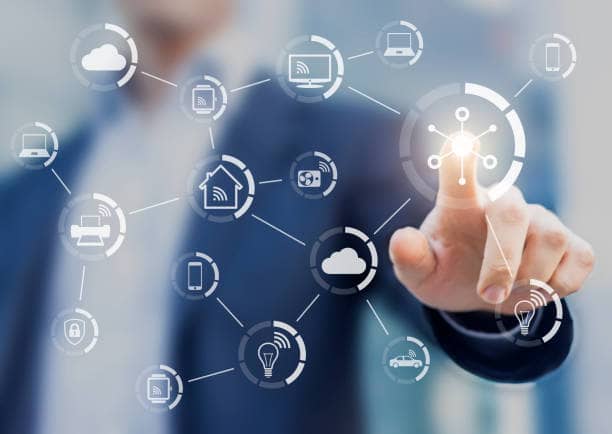The AI Revolution: Shaping the Future of Remote Work
- March 28, 2024
- Posted by: Cheryl Li
- Category: AI & AI Automation Trends

Remote work, once considered a luxury or a perk for a select few, has become a global norm. The COVID-19 pandemic accelerated the shift towards remote work, forcing businesses to adapt to a new way of operating. This seismic shift has also underscored the importance of technology in maintaining productivity and connectivity. Among the various technological advancements, Artificial Intelligence (AI) stands out as a pivotal force shaping the future of remote work. AI’s capabilities extend beyond mere automation; it enhances collaboration, optimizes workflows, and supports employees in unprecedented ways. In this blog post, we will explore the multifaceted role of AI in the future of remote work.
Enhancing Communication and Collaboration
One of the most significant challenges of remote work is maintaining effective communication and collaboration among team members. AI-powered tools are bridging this gap by providing sophisticated solutions that mimic in-person interactions.
Virtual Assistants and Chatbots
AI-driven virtual assistants and chatbots are becoming indispensable in remote work environments. These tools help manage schedules, set reminders, and even assist in project management by providing updates and tracking progress. For instance, AI chatbots can answer common queries from employees, reducing the workload on human resources and IT departments.
Real-Time Language Translation
Global teams often face language barriers that can hinder collaboration. AI-powered real-time language translation tools, such as those integrated into video conferencing platforms, enable seamless communication across different languages. This fosters a more inclusive and efficient work environment, where ideas and information flow freely without language constraints.
Smart Meeting Tools

AI is revolutionizing the way remote meetings are conducted. Smart meeting tools can transcribe conversations, highlight key points, and even provide action items at the end of a meeting. These tools not only save time but also ensure that no critical information is lost. Moreover, AI can analyze meeting data to provide insights into team dynamics and suggest improvements for future interactions.
Optimizing Workflow and Productivity
AI’s role in optimizing workflow and productivity cannot be overstated. By automating routine tasks and providing intelligent insights, AI allows employees to focus on higher-value activities.
Task Automation
Repetitive tasks, such as data entry and scheduling, can be automated using AI. Tools like robotic process automation (RPA) can handle these mundane tasks with high accuracy and speed. This not only reduces the burden on employees but also minimizes the risk of errors, leading to more efficient operations.
Predictive Analytics
AI-driven predictive analytics can forecast project timelines, identify potential bottlenecks, and suggest resource allocations to ensure timely completion of tasks. By analyzing historical data and current trends, AI can provide actionable insights that help managers make informed decisions.
Personal Productivity Assistants
AI-powered personal productivity assistants, like virtual coaches, can monitor an individual’s work habits and suggest ways to improve efficiency. These assistants can recommend optimal times for focused work, suggest breaks, and even provide tips on time management. By personalizing productivity strategies, AI helps employees work smarter, not harder.
Supporting Employee Well-Being
Remote work can blur the lines between professional and personal life, leading to issues like burnout and decreased mental well-being. AI is playing a crucial role in supporting employee well-being by providing tools and resources to maintain a healthy work-life balance.
Mental Health Support
AI-driven mental health platforms offer remote employees access to counseling and therapy services. These platforms use natural language processing (NLP) to analyze text and speech, providing personalized support and identifying signs of stress or anxiety. Some AI tools can even recommend mindfulness exercises or coping strategies based on an individual’s emotional state.
Ergonomic Assessments
Prolonged periods of working from home can lead to physical discomfort and musculoskeletal problems. AI-powered ergonomic assessment tools use computer vision to analyze an individual’s workspace setup and provide recommendations for improvements. This ensures that remote workers maintain a healthy posture and reduce the risk of physical strain.
Work-Life Balance Tools
AI can help remote workers maintain a healthy work-life balance by monitoring their work patterns and suggesting adjustments. For instance, AI tools can analyze an employee’s working hours and recommend breaks or highlight periods of overwork. By promoting a balanced approach to work, AI contributes to the overall well-being of remote employees.
Enabling Remote Learning and Development
Continuous learning and development are essential for career growth and job satisfaction. AI is transforming remote learning by providing personalized and adaptive learning experiences.
Personalized Learning Paths
AI-powered learning platforms can create personalized learning paths based on an individual’s skills, interests, and career goals. These platforms use machine learning algorithms to recommend courses, resources, and activities that align with an employee’s development needs. By tailoring the learning experience, AI ensures that employees acquire relevant skills and knowledge.
Virtual Mentorship Programs
AI can facilitate virtual mentorship programs by matching mentors and mentees based on their profiles and goals. These programs provide remote employees with valuable guidance and support, fostering a culture of continuous learning and professional growth. AI-driven mentorship platforms can also track progress and suggest areas for improvement, ensuring that the mentorship relationship remains productive and beneficial.
Skill Assessment and Development
AI-powered skill assessment tools can evaluate an employee’s proficiency in various areas and identify skill gaps. These tools provide actionable insights and recommend targeted development activities to bridge the gaps. By enabling continuous skill development, AI ensures that remote employees remain competitive and capable of meeting evolving job requirements.
Ensuring Security and Compliance
Remote work introduces new security challenges, as employees access company resources from diverse locations and devices. AI plays a critical role in ensuring security and compliance in remote work environments.
Threat Detection and Prevention
AI-driven security systems can detect and prevent cyber threats in real time. By analyzing patterns and anomalies in network traffic, these systems can identify potential security breaches and take proactive measures to mitigate risks. This is particularly important for remote work, where employees may be more vulnerable to phishing attacks and other cyber threats.
Compliance Monitoring
AI can help organizations ensure compliance with regulatory requirements by monitoring remote work activities. AI-powered compliance tools can analyze communications, transactions, and other activities to identify potential violations and ensure adherence to policies. This reduces the risk of non-compliance and protects the organization from legal and financial repercussions.
Secure Access Management
AI-powered identity and access management (IAM) systems provide secure access to company resources. These systems use biometric authentication, behavioral analysis, and other advanced techniques to verify the identity of remote employees. By ensuring that only authorized individuals can access sensitive information, AI enhances the security of remote work environments.
Conclusion
AI is undeniably shaping the future of remote work in profound ways. From enhancing communication and collaboration to optimizing workflow and supporting employee well-being, AI provides the tools and insights necessary for a productive and sustainable remote work environment. As technology continues to evolve, AI will play an even more significant role in addressing the challenges and opportunities associated with remote work. By embracing AI-driven solutions, organizations can create a more efficient, secure, and supportive remote work experience for their employees, paving the way for a future where remote work is not just a necessity, but a thriving and integral part of the modern workplace.

